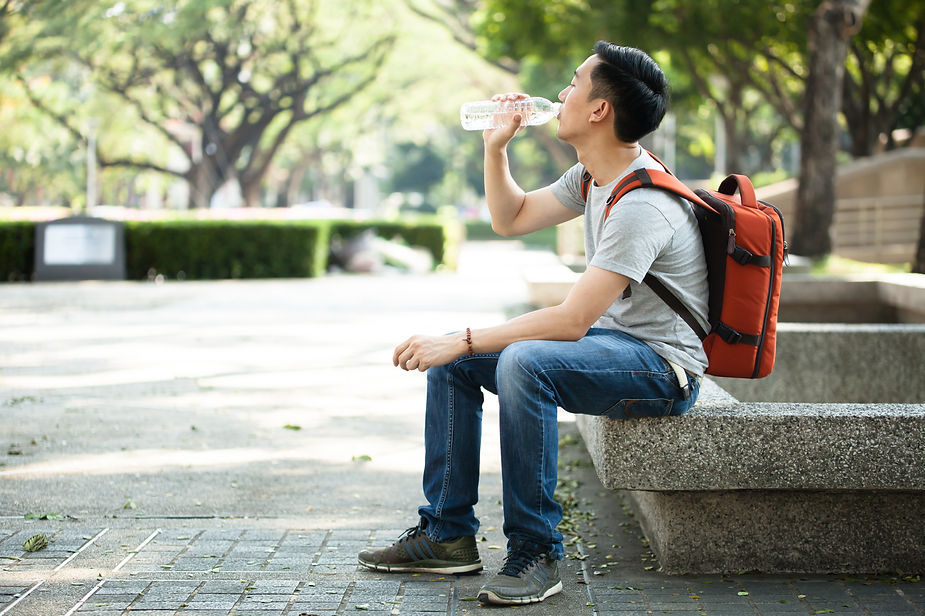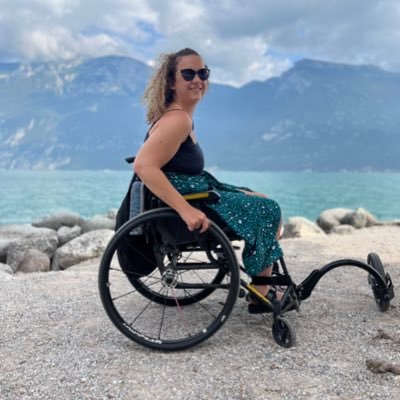Written by Carrie-Ann Lightley, June 4, 2024
AD – this post is sponsored by Avanti Travel Insurance.
For those planning a trip, poor air quality can significantly impact the experience. As air pollution levels rise, it raises concerns about potential health risks and the overall enjoyment of travel activities.
This article explores the effect of air quality on travel and provides strategies to mitigate exposure to air pollution. It examines the role of travel insurance and empowers readers to make informed decisions when air pollution is a factor at their destination.

The Impact of Air Pollution on Travel
Understanding Air Pollution Exposure and Symptoms
Air pollution is a complex mixture of harmful substances, including chemicals, particulate matter, and biological materials. It poses a significant public health risk, contributing to chronic diseases, increased hospitalizations, and premature mortality. The World Health Organization estimates that outdoor air pollution alone causes 3.7 million premature deaths worldwide annually.
Exposure to air pollution can lead to various short-term symptoms, such as:
● Itchy eyes, nose, and throat
● Wheezing and coughing
● Shortness of breath
● Chest pain
● Headaches and nausea
● Upper respiratory infections like bronchitis and pneumonia
● Exacerbation of asthma and emphysema
Long-term effects of air pollution exposure can include lung cancer, cardiovascular disease, cerebrovascular disease, chronic respiratory illnesses, and the development of allergies. Air pollution has also been associated with an increased risk of heart attacks and strokes.
Factors to Consider When Planning a Trip
No matter your destination, you cannot fully escape air pollution. However, the duration of exposure and concentration of pollutants can significantly impact your health during travel. When planning your trip, consider these five crucial factors:
1. Health Status: Do you have pre-existing conditions like asthma, allergies, chronic bronchitis, heart or lung disease? These conditions can make you more susceptible to the effects of air pollution.
2. Age: Older individuals and young children are more vulnerable to air pollution due to pre-existing conditions or higher air intake relative to their body weight.
3. Destination: Urban areas, cities in valleys, and regions with minimal rainfall can experience higher air pollution levels due to factors like increased vehicle emissions, trapped air, and lack of pollutant dispersion.
4. Length of Trip: While long-term exposure to air pollution is well-studied, short-term exposure can also have health effects. A study on young, healthy travellers found that lung function decreased by 6-20% during short trips to highly polluted cities, but recovered upon returning home.
5. Season: Seasonal weather patterns, such as hot and humid days or increased heating system usage in winter, can contribute to smog formation. Additionally, events like forest fires, dust storms, and monsoons can affect air pollution levels. If you have asthma or allergies, consider the pollen season at your destination.

How to Find Air Quality Data for Your Destination
Countries and regional blocs like the European Union have different measurement standards and indexes to communicate air pollution levels. However, most indexes provide scales ranging from good to hazardous air quality, along with advice for sensitive population groups.
The World Health Organization (WHO) recommends that the annual mean concentrations of PM2.5 (fine particulate matter) should not exceed 10 μg/m³, and PM10 (particulate matter) should not exceed 20 μg/m³. Levels above these measurements are considered unsafe.
To access real-time air quality data for your destination, you can visit resources like:
● The World Air Quality Project
● The European Air Quality Index App (for European destinations)
● Air quality monitoring platforms and apps provided by local authorities or organizations
These resources can provide up-to-date information on air quality levels, forecasts, and health recommendations, helping you make informed travel decisions and take necessary precautions.
Strategies for Mitigating Air Pollution Exposure
Tips for Minimising Exposure Before and During Your Trip
1. Stay Informed: Monitor air quality levels at your destination by checking online resources like the World Air Quality Project, local government websites, or air quality apps. This will help you plan activities and take necessary precautions.
2. Choose Accommodation Wisely: Opt for hotels or accommodations away from high-traffic areas, industrial zones, or other potential sources of air pollution.
3. Plan Indoor Activities: On days with poor air quality, plan indoor activities like visiting museums, galleries, or shopping malls to minimise exposure.
4. Avoid Peak Hours: If possible, avoid being outdoors during rush hours or times when air pollution levels are typically higher due to increased traffic and emissions.
5. Use Public Transportation: Whenever feasible, use public transportation or consider walking or cycling to reduce your contribution to air pollution and exposure.
6. Stay Hydrated: Drink plenty of water, especially in hot weather, as it can help reduce irritation caused by air pollution.
7. Practise Good Hygiene: Wash your hands and face frequently to remove accumulated pollutants, and consider using a saline nasal spray to rinse your nasal passages.

Precautions for Travellers with Underlying Health Conditions
1. Consult Your Doctor: If you have pre-existing conditions like asthma, COPD, heart disease, or respiratory issues, consult your healthcare provider before travelling to areas with poor air quality. Obtain necessary medications and follow their advice.
2. Carry Essential Medications: Ensure you have an adequate supply of prescribed medications, inhalers, and any emergency medications recommended by your doctor.
3. Limit Outdoor Activities: During high pollution episodes, avoid strenuous outdoor activities or exercise, as they can increase your exposure and exacerbate symptoms.
4. Monitor Symptoms: Pay close attention to any worsening of symptoms, such as difficulty breathing, chest tightness, or increased coughing. Seek medical assistance if necessary.
5. Consider Postponing or Rerouting: If air pollution levels are consistently high at your destination, consider postponing or rerouting your trip to a location with better air quality.
Using Protective Gear Effectively
1. Respirator Masks: Consider using respirator masks like N95 or N99, which can filter out fine particulate matter. Ensure a proper fit for maximum protection.
2. Proper Usage: Follow the manufacturer’s instructions for proper usage, including how to put on and remove the mask, and when to replace it.
3. Limitations: Respirator masks may not provide complete protection against all pollutants, especially gases and chemicals. They should be used in conjunction with other precautions.
4. Consult Experts: If you have respiratory conditions, consult your healthcare provider before using respirator masks, as they may increase breathing resistance.
5. Avoid Over Reliance: Respirator masks should not be relied upon as the sole means of protection. They are most effective when combined with other strategies, such as minimising outdoor exposure and staying informed about air quality levels.
Remember, the impact of air pollution on your travel experience can vary depending on individual factors, such as health status, age, and the duration of your trip. By staying informed, taking precautions, and following the advice of healthcare professionals, you can mitigate the risks and enjoy a safer and more comfortable travel experience.

Making Informed Travel Decisions
Weighing the Risks and Benefits
When planning a trip to a destination with poor air quality, it’s crucial to weigh the potential risks against the benefits. Travellers should start by researching the air quality levels at their desired destination using reliable resources like the World Air Quality Report or local government websites. Some destinations may have better air quality during certain seasons, so timing the visit accordingly can help mitigate exposure.
It’s also important to consider individual health factors. Those with pre-existing conditions like asthma, COPD, or heart disease may be more vulnerable to the effects of air pollution. Consulting a healthcare provider and insurer and obtaining necessary medications before travel is advisable.
Alternative Travel Options or Destinations
If air pollution levels at the intended destination are consistently high, travellers may want to explore alternative options. One approach is to consider cleaner destinations with better air quality records. For instance, the 2022 World Air Quality Report revealed that Las Vegas had the best air quality among major cities in the United States.
Alternatively, travelers can explore nearby national parks or outdoor destinations closer to home, reducing the need for long-distance travel and minimizing exposure to air pollution.
Activities like hiking, camping, or cycling in these areas can provide a refreshing outdoor experience while minimising the carbon footprint.
Responsible Travel and Environmental Considerations
Responsible travel practices can help mitigate the environmental impact of air pollution and promote sustainability. Travellers should consider the following strategies:
1. Opt for eco-friendly accommodations that prioritise renewable energy sources, recycling programs, and locally sourced food.
2. Minimise single-use plastic consumption by carrying reusable water bottles and saying no to plastic bags or containers.
3. Utilise public transportation or choose walking or cycling options to reduce emissions from private vehicles.
4. Support local businesses and communities by patronising locally-owned restaurants, shops, and accommodations.
5. Respect local cultures and traditions, and participate in community-centred tourism projects or volunteer opportunities.
6. Pack light and choose direct flights to reduce carbon emissions from air travel.
By adopting sustainable travel practices and making informed decisions, travellers can enjoy their destinations while minimising their environmental impact and supporting local communities.
Conclusion
The impact of air pollution on travel is a complex issue that requires careful consideration. While air quality data and precautionary measures can help mitigate exposure risks, individual health factors and destination choices play a crucial role in determining the overall travel experience. Responsible travel practices that prioritize sustainability and support local communities can contribute to a cleaner environment, benefiting both travelers and residents alike.
Ultimately, weighing the potential health risks against the benefits of travel is a personal decision. By staying informed, consulting healthcare professionals, and exploring alternative options or destinations, travelers can make informed choices that align with their priorities and values. Embracing responsible tourism practices not only enhances the travel experience but also promotes a more sustainable future for the planet.
